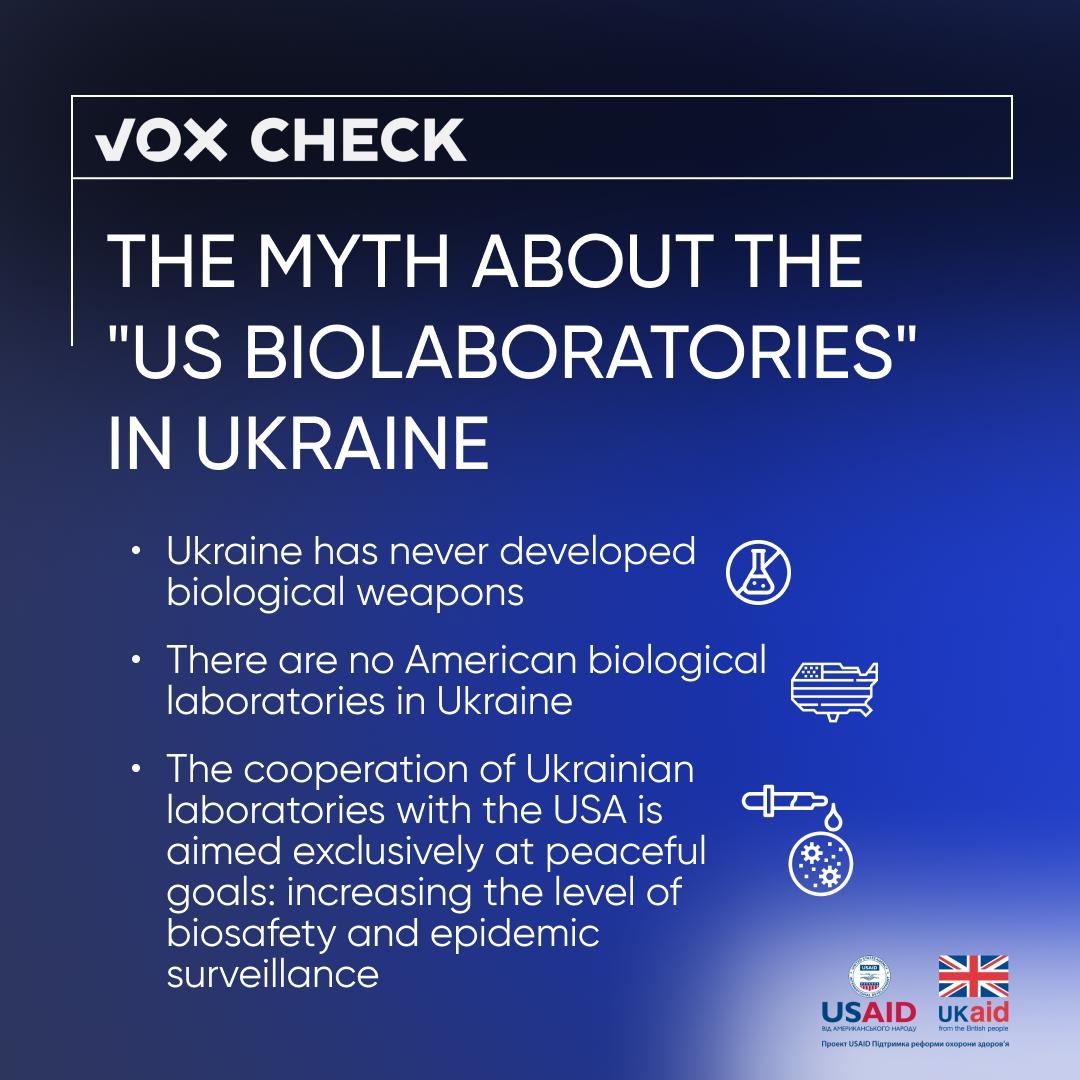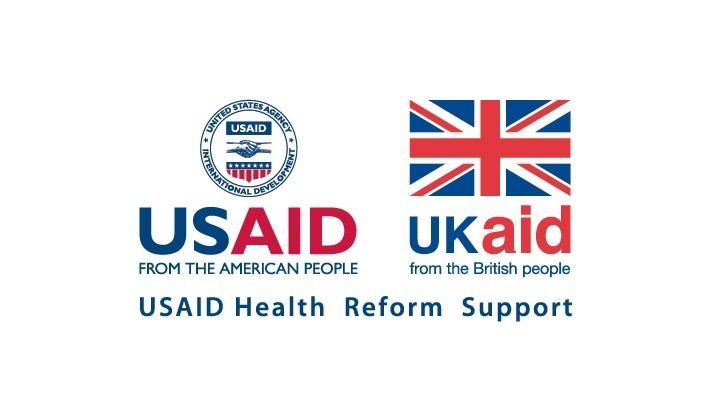The russian narrative about “US biolaboratories” in Ukraine appeared even before the full-scale invasion of the russian federation. However, in 2022, russian propaganda outdid itself, and fakes about laboratories became a permanent topic of kremlin news. In this article, we refute a new allegation about Ukrainian-American research on the Ebola virus in Odesa.
With the support of the USAID Health Reform Support project, VoxCheck analyzes and refutes public health narratives spread in the information space of Ukraine, Belarus, and russia on a weekly basis.
The russian Ministry of Defense reported that the American company Metabiota and the Ukrainian Scientific and Technical Center (USTC) planned to study the Ebola virus on the basis of the Mechnikov Antiplague Institute in Odesa. Representatives of the russian federation added that since the Ebola virus has never been recorded in Ukraine, such studies are suspicious and are part of the US strategy to transfer dangerous research to the territory of other countries.
What’s the reality?
In order to confirm similar plans of the representatives of Ukraine and the USA, the Ministry of Defense of the russian federation refers to a passage with an appeal to the USTC with a description of the research project. In fact, the published document is not about a joint study of the Ebola virus but about the improvement of laboratory diagnostics of dangerous viruses, particularly the Ebola virus, at the I.I. Mechnikov Ukrainian Research Antiplague Institute. The document states that the antiplague institute is the only laboratory in Ukraine that can work with the most dangerous viruses. The project’s priority with the American side is justified by the risk of the spread of dangerous viruses in Ukraine, the lack of experience of laboratory employees in diagnosing the Ebola virus, and the lack of necessary materials for diagnosis.
We have not been able to find from which document the Ministry of Defense of the russian federation took this excerpt describing the project. However, even in this short version of the address, there is no evidence of “dangerous US research in Ukraine”, to which russian speakers allude.
Foreign biological laboratories do not operate on the territory of Ukraine. The Biological Threat Reduction Program, carried out in cooperation with the USA, is exclusively peaceful in nature and aims at modernizing Ukrainian laboratories, increasing the level of biosafety, and improving epidemiological surveillance. The Odesa Antiplague Institute is also included in the list of institutions covered by this program.
Sources: SSU, US Department of Defense
In 2014, during the Ebola virus epidemic in West Africa, the Ministry of Health of Ukraine announced the high risk of the infection spreading in Ukraine. The virus could have entered the country through students from West Africa, sailors, Ukrainian peacekeepers who served in that region, or residents of neighboring countries where the infection was already registered (russia, Poland, Romania).
In October 2014, the Ministry of Health appointed the antiplague institute in Odesa as the Ebola virus diagnosis coordinator. In the order of the Ministry of Health of October 24, it is indicated that the laboratory diagnosis of the disease caused by the Ebola virus can be carried out on the basis of this institution. Therefore, in Ukraine, since at least 2014, there have been opportunities to diagnose the disease caused by the Ebola virus. There is nothing suspicious about the plans to improve laboratory diagnostics.
The American company Metabiota helped monitor the spread of the Ebola virus and develop a plan to fight the epidemic in the Democratic Republic of Congo. In a comment to the Washington Post, a representative of Metabiota said that the company also worked in Ukraine until 2020 and provided training to combat threats to public health. At the same time, the company did not specify which laboratories it cooperated with.
Disclaimer: This information piece was produced with the assistance of the United States Agency for International Development (USAID), provided on behalf of the people of the United States of America, and with the support of the United Kingdom Government’s Good Governance Fund program on behalf of the people of Great Britain. This article’s content is the sole responsibility of Deloitte Consulting under contract #72012118C00001. It does not necessarily reflect the views of USAID, the United States Government, UK aid, or the United Kingdom Government.
Attention
The authors do not work for, consult to, own shares in or receive funding from any company or organization that would benefit from this article, and have no relevant affiliations





